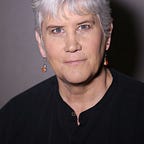Peace in !Kung, a click language of the San People of Southern Africa
Poetry and Language for Brain Health
ǂgou (peace) — !Kung: !Kung (knw-001), !Kung (ktz-001), !O!Kung, !’O!Kung, Okung, Kung, Ekoka !Kung, Ekoka Kung, Sekele; Ju/’hoan, Ju, !Kung (knw) (ktz-003), Bushmen, !Xuun, Ukualuthu, Ukuambi, one of the larger click languages and belongs to the Kx’a language family; Kung-Tsumkwe (ktz); Kung-Gobabis, Akhoe, Oung, !Xu, Auen, Gobabis, Dialects (Dzu, ‘Oasi, Nogau), ǂKxʼauǁʼein (ktz-003); !Kung: Aukwe, West !Kung; Kung-Gobabis (aue), East !Kung, Kung Gobabis; Xu, !Xu, Ekoka-!Xu, Kung-Ekoka (knw), a Northern Khoisan; !Kung: NIIc a dialect near Ukualuthu, NIII !O!Kung; Northern; Ekoka-/Xu; Ekoka-!xû; Ekoko-!Xû; !Hu; Kaukau; !Khung!Kung; !Ku; Kung-Ekoka; North Bushman; Qxû; Qxü; Xu; !Xu; !Xun; !Xung Grootfontein ! Kung (ktz-002), NII !Kũ, !Kuŋ from Grootfontein to the Okavango, NIIa Hei||kum, Heikum — “ǂgou” (to be at peace), “ǂgou:wa” (to be at peace, quiet, silent), “Sekisaha” (to make peace), “/ui” (calm), “/wi” (to be light (not heavy), easy, calm), “| kau kakho” (peace), “!kanahe” (peace), “||gan kakho” (peace), “Karikuse” (quiet), “Goo” (to be silent), “Ka kao” (to be silent), “Fgau” (peace, silent) — Africa, South Africa (San people of the Kalahari Desert in Southern Africa), Namibia (Northeastern Namibia), Angola (Southwestern Angola), Botswana (Northwestern Botswana).
Part of the upcoming book, The Traveler’s Brain: The Word For Peace, Paix, Paz, Damai, and Heping in 5000 Languages https://www.nervewhisperer.solutions/world-peace-dictionary/peace-in-5000-languages
Real and Imaginary Half Liver
In the imaginary constructed Verdurian language of Lé or Létɔ̂ŋ
“čiŋ” is half
“čín” is fish
“čìŋ” is season, time, situation, state of affairs
In the real but almost extinct language of !Kung
spoken by the San people
in the Kalahari Desert of southern Africa.
“čiŋ” pronouced [ching] is liver
In the native american Siouan language Santee Dakota
čiŋ is to choose
and héčiŋhaŋ is if
that moment before a choice
In Lakota another Siouan languge
“čiŋ” is small or a little
pronounced [cheeŋ]
and “cíŋca” [cheeŋ-cha] / [čiˈŋčə] is offspring or child
In the European language Provençal Occitan
“čiŋ” pronouced [chin]
and means dog
similar to the Latin “canis” or French “chien”
青椒 are the Chinese characters for green pepper
pronouced in Chinese “qīngjiāo”
in Mongolian it is “čiŋ ǰiyuu” or Korean “cheongcho”
while said “thanh tiêu” in Vietnamese
Translated from Ancient Turkish
“čiŋ” means strong, tight and firm
and can be written
چينک in Arabic
Making Sense of Death, Life and Health, A Found Poem
The Ju/ ′hoansi manage to make a living
their semi-desert environment
in a world of uncertainty
Inhabited by forces beyond their control
face illness, misfortune, and the ultimate loss — death
The Ju/ ′hoansi seek to gain control
the meaning people attach is culturally given
without making sense
life would be impossible
The Ju/ ′hoansi world involves forces
the “//gangwasi” ghosts of recently deceased Ju/ ′hoansi
hover near the Ju villages,
cause serious illness or misfortune
The Ju/ ′hoansi far from defenseless
have many spells, herbs, magic formulas
practices for restoring health or good fortune
the powerful tool of “n/um” spiritual medicine
energy given by gods to men and women
healers enter trances go to the //gangwasi
cajole, plead, argue, do battle
to make them give up their grip
and leave the living in “ǂgouwa”
peace
Brain Health Exercise: How do you make meaning, make sense of death, life and health?
Found Poetry from The-Dobe-Ju-hoansi-by-Richard-B.-Lee
Town From a Ju/’hoan or !Kung Perspective
Town life is stressful and boring
in the Bush food is free and plentiful
the peace and quiet of the bush
full of the sounds of nature
contrasting sounds of alcohol-fueled squabbles
and the social problems alcohol brings.
the bush is part of our cultural tradition
it is who we are as a people
Brain Health Exercise: Compare and contrast places you have lived.
Peace Talking and Telling Tales
From The Year of The Poet June 2020 (Inner Child Press)
“The most loquacious people”
J. Marshall observed
referring to the Ju/’hoan
suggests one useful strategy
maintaining peace “fgou”
diffusing tensions by talking
the San people of the Kalahari Desert
are not silent “ǂgau”
engage in conversation
all day long and well into the night
as they work
as they eat
as they gather around the fires
with their children at night
as they visit with other families
people who have hunted or gathered separately
recount in exhaustive detail
the tracks of animals
amounts of berries
abundance of certain plants
then plan what come next
where might there be game?
to whom will they give nuts?
the band a unit of sharing
demands peace and cooperation among members
Found poetry from Marshall, J. and C. Ritchie. Where Are the Ju/wasi of Nyae Nyae? Changes in a Bushman Society: 1958–1981. Cape Town: University of Cape Town Press, 1984 found in Culture S etches, Case Studies in Anthropology 3rd Ed. by Holly Peters-Golden
